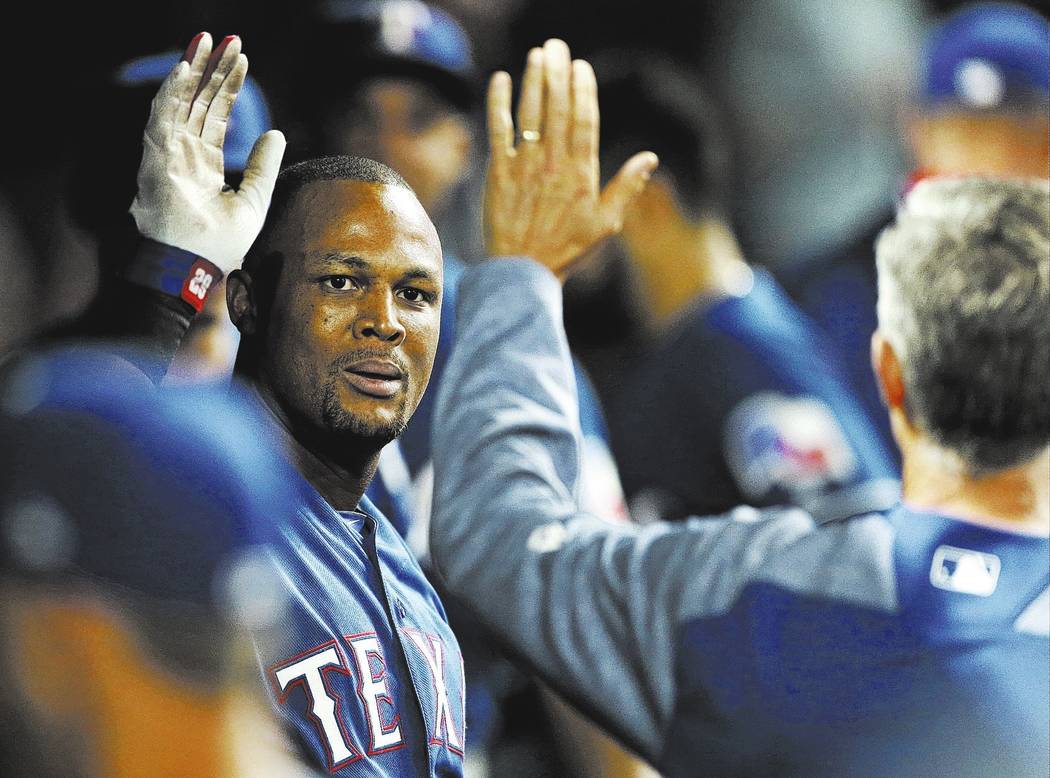COMMENTARY: The Krauthammer Conjecture: In sports, the pleasure of winning is less than the pain of losing.

In mathematics, when you’re convinced of some eternal truth but can’t quite prove it, you offer it as a hypothesis (with a portentous capital H) and invite the world, future generations if need be, to prove you right or wrong. Often, a cash prize is attached.
In that spirit, but without the cash, I offer the Krauthammer Conjecture: In sports, the pleasure of winning is less than the pain of losing. By any Benthamite pleasure/pain calculation, the sum is less than zero. A net negative of suffering. Which makes you wonder why anybody plays at all.
Winning is great. You get to hoot and holler, hoist the trophy, shower in champagne, ride the open parade car and boycott the White House victory ceremony (choose your cause).
But, as most who have engaged in competitive sports know, there’s nothing to match the amplitude of emotion brought by losing. When the Cleveland Cavaliers lost the 2015 NBA Finals to Golden State, LeBron James sat motionless in the locker room, staring straight ahead, still wearing his game jersey, for 45 minutes after the final buzzer.
Here was a guy immensely wealthy, widely admired, at the peak of his powers — yet stricken, inconsolable. So it was for Ralph Branca, who gave up Bobby Thomson’s shot heard ‘round the world in 1951. So too for Royals shortstop Freddie Patek, a (literal) picture of dejection sitting alone in the dugout with his head down after his team lost the 1977 pennant to the New York Yankees.
In 1986, the “Today Show” commemorated the 30th anniversary of Don Larsen pitching the only perfect game in World Series history. They invited Larsen and his battery mate, Yogi Berra. And Dale Mitchell, the man who made the last out. Mitchell was not amused. “I ain’t flying 2,000 miles to talk about striking out,” he fumed. And anyway, the called third strike was high and outside. It had been 30 years and Mitchell was still mad. (Justly so. Even the Yankee fielders acknowledged that the final pitch was outside the strike zone.)
For every moment of triumph, there is an unequal and opposite feeling of despair. Take that iconic photograph of Muhammad Ali standing triumphantly over the prostrate, semiconscious wreckage of Sonny Liston. Great photo. Now think of Liston. Do the pleasure/pain calculus.
And we are talking here about professional athletes — not even the legions of Little Leaguers, freshly eliminated from the playoffs, sobbing and sniffling their way home, assuaged only by gallons of Baskin-Robbins.
Any parent can attest to the Krauthammer Conjecture. What surprises is how often it applies to battle-hardened professionals making millions.
I don’t feel sorry for them. They can drown their sorrows in the Olympic-sized infinity pool that graces their Florida estate. (No state income tax.) I am merely fascinated that, despite their other substantial compensations, some of them really do care. Most interestingly, often the very best.
Max Scherzer, ace pitcher for the Washington Nationals, makes $30 million a year. On the mound, forget the money. His will to win is scary. Every time he registers a strikeout, he stalks off the mound, circling, head down, as if he’s just brought down a mastodon.
On June 6, tiring as he approached victory, he began growling — yes, like a hungry tiger — at Chase Utley as he came to the plate. “It was beautiful,” was the headline of the blog entry by The Washington Post’s Scott Allen.
When Scherzer gets like that, managers are actually afraid to go out and tell him he’s done. He goes Mad Max. In one such instance last year, as Scherzer labored, manager Dusty Baker came out to the mound. Scherzer glared.
“He asked me how I was feeling,” Scherzer recounted, “and I said I still feel strong … I still got one more hitter in me.”
Asked Baker, demanding visual confirmation: “Which eye should I look at?”
Scherzer, who famously has one blue and one brown eye, shot back: “Look in the [expletive] brown eye!”
“That’s the pitching one,” he jokingly told reporters after the game.
Baker left him in.
After losing her first ever UFC match, mixed martial artist Ronda Rousey confessed that she was in the corner of the medical room, “literally sitting there thinking about killing myself. In that exact second, I’m like, ‘I’m nothing.’” It doesn’t get lower than that.
Said Vince Lombardi, “Winning isn’t everything. It’s the only thing.” To which I add — conjecture — yes, but losing is worse.
Contact Charles Krauthammer at letters@charleskrauthammer.com.